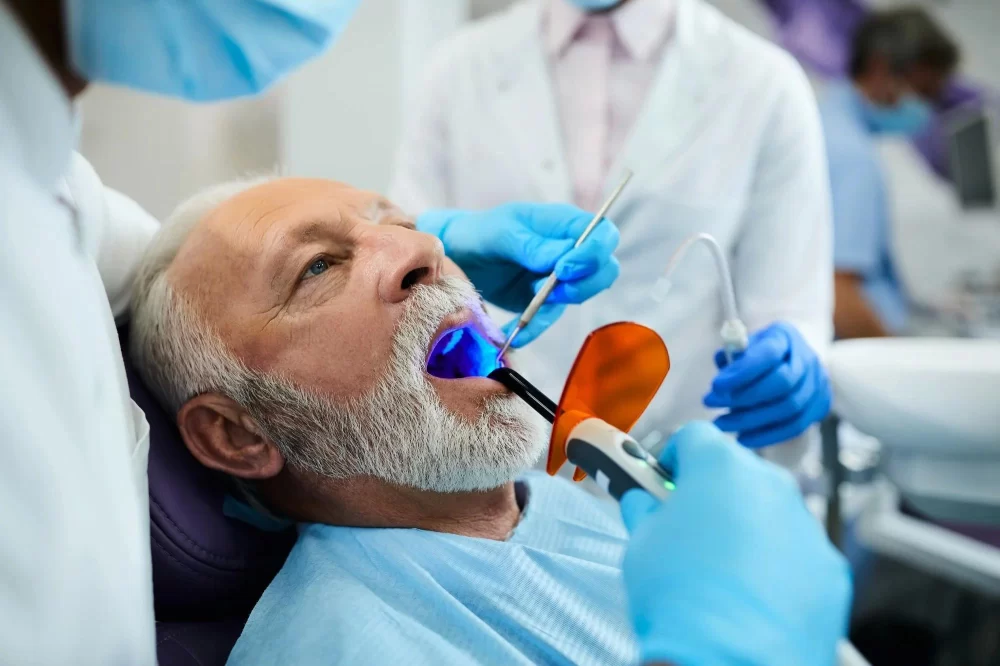
The Connection Between Dental Care and Mental Health in Elderly Patients
As I’ve gotten older, I’ve come to realize that taking care of my teeth isn’t just about avoiding cavities or keeping my smile looking nice. It’s about much more than that. As a senior, I’ve learned that oral health plays a huge role in mental well-being. At first, I didn’t fully understand the connection between dental care and mental health, but after speaking with my dentist and reflecting on my own experiences, it’s clear that they are deeply intertwined. Let me share my journey and what I’ve discovered about how dental care can impact mental health in elderly patients like myself.
1. The Emotional Toll of Poor Oral Health
As I was growing older, I started noticing that my teeth weren’t as strong as they once were. I had trouble chewing certain foods, and I began to feel embarrassed about my smile. It wasn’t just physical discomfort that started to affect me; it was the emotional toll. I remember one day feeling so self-conscious about my teeth that I refused to smile in family photos. That moment really hit me—how could something as simple as oral health affect my confidence and happiness? And I wasn’t alone in this. Many of my elderly friends and neighbors expressed similar feelings, so I began to realize that poor dental health in older adults isn’t just a physical problem; it’s a mental and emotional one too.
In fact, research has shown that seniors with poor oral health are more likely to experience depression, anxiety, and low self-esteem. When I reflected on my own experience, I realized how much my mental state was impacted by my dental issues. The inability to enjoy food, constant discomfort, and fear of judgment in social situations can easily lead to feelings of isolation and sadness.
2. The Link Between Oral Health and Cognitive Decline
Something else I learned over time was that poor dental care isn’t just about the surface-level issues—it can also affect cognitive function. When my dentist explained to me how gum disease and other oral health issues could contribute to cognitive decline, I was shocked. It turns out that bacteria from oral infections can enter the bloodstream and affect the brain, potentially increasing the risk of conditions like dementia and Alzheimer’s disease. At first, I didn’t fully understand how my gums could have an impact on my brain health, but the more I looked into it, the more I realized just how serious the connection is.
I’ve spoken to other seniors who have had similar revelations, and many of them are now prioritizing their oral hygiene because they understand the long-term risks. When you take care of your teeth, you’re not only preventing tooth decay and gum disease, you’re also protecting your brain. The mind-body connection is something I’ve learned to respect, and I can’t stress enough how important it is to keep up with regular dental check-ups and proper oral care.
3. Social Isolation and the Psychological Effects of Dental Issues
Social isolation is another significant issue that many seniors face. I’ve seen this in my own community—seniors who avoid socializing because they feel embarrassed about their teeth or can’t enjoy meals due to dental pain. I’ve been there myself; when my teeth were causing me discomfort, I found myself withdrawing from social gatherings. I was worried that people would notice my teeth or that I wouldn’t be able to enjoy the food. It’s not hard to see how this kind of thinking can lead to loneliness and depression.
There’s a strong psychological impact of not being able to engage in everyday activities, like eating with friends or family. For many older adults, these small moments are essential for maintaining a sense of connection and joy. But when dental problems make it hard to eat, speak, or even smile, it can take a serious toll on a person’s mental health. I’ve seen how restoring someone’s dental health can bring back a sense of confidence and joy, allowing them to reconnect with the world around them.
4. How Regular Dental Care Improves Mental Health
As I began to take better care of my teeth, I noticed a huge improvement not just in my oral health but also in my overall mental well-being. One of the first steps I took was visiting my dentist for a thorough cleaning and check-up. After that, I made sure to brush and floss regularly, using the proper techniques that my dentist recommended. Over time, I noticed I was no longer in constant pain from toothaches, and I could enjoy meals without discomfort. More importantly, I felt better about myself—my confidence improved, and I was able to engage in social situations without feeling embarrassed about my teeth.
It wasn’t just the physical benefits that made a difference. By investing in my oral health, I felt like I was taking charge of my well-being again. When my dentist noticed that I was making an effort to maintain my teeth and gums, he even mentioned that the improvement in my oral health could positively affect my mental health. This was something I hadn’t fully understood until then, but it made complete sense: taking care of my teeth helped me take care of my mind. I’ve since shared this realization with others, and many of them have also experienced a boost in mood and mental health once they took their oral care more seriously.
5. The Role of Dentists in Supporting Mental Health for Seniors
One of the most valuable things I’ve learned is that dentists don’t just care about your teeth—they care about your overall health, including your mental well-being. Over the years, I’ve developed a close relationship with my dentist, who takes the time to listen to my concerns and discuss how my oral health might be affecting my mood or mental state. When my dentist became aware of the emotional toll that my dental issues were taking on me, he was able to offer resources and tips on how to manage both my oral care and my mental health. This holistic approach was a game-changer for me.
In fact, more and more dentists are being trained to recognize signs of mental health issues in their patients, particularly in elderly individuals. If you’re feeling down or anxious about your teeth or oral care, don’t hesitate to talk to your dentist. They can help guide you in the right direction and even refer you to mental health professionals if necessary. Understanding the connection between dental care and mental health is crucial, and finding a dentist who is aware of this connection can make all the difference.
By prioritizing dental care, we’re not just ensuring a healthy mouth—we’re improving our mental health, boosting our confidence, and enhancing our quality of life. It’s a small but powerful step that can lead to big changes in how we feel, both physically and emotionally. I’ve found that taking care of my teeth has been a vital part of taking care of my overall well-being, and I encourage others to do the same.







 Eastridge Family Dental, P.C.4.0 (267 review)
Eastridge Family Dental, P.C.4.0 (267 review) Pediatric Dental Specialists4.0 (302 review)
Pediatric Dental Specialists4.0 (302 review) Crossroads Pediatric Dentistry0.0 (0 review)
Crossroads Pediatric Dentistry0.0 (0 review) Metropolitan Oral and Maxillofacial Surgery Associates4.0 (365 review)
Metropolitan Oral and Maxillofacial Surgery Associates4.0 (365 review) Pristine Dental4.0 (237 review)
Pristine Dental4.0 (237 review) Family Dentistry of Westford4.0 (19 review)
Family Dentistry of Westford4.0 (19 review) The Importance of Oral Health Education During Pregnancy for a Healthy Pregnancy
The Importance of Oral Health Education During Pregnancy for a Healthy Pregnancy Best Tips for Brushing Your Teeth Properly for Healthy Gums: Essential Techniques for Oral Health
Best Tips for Brushing Your Teeth Properly for Healthy Gums: Essential Techniques for Oral Health Why Skipping Dental Checkups Can Lead to Bigger Oral Health Problems
Why Skipping Dental Checkups Can Lead to Bigger Oral Health Problems Advantages of Porcelain Dental Restorations
Advantages of Porcelain Dental Restorations How Can Diabetes Cause Tooth and Gum Problems? Preventing and Managing Oral Health Issues
How Can Diabetes Cause Tooth and Gum Problems? Preventing and Managing Oral Health Issues Healthy Habits for Promoting Good Oral Health and Hygiene: Tips for a Healthy Smile
Healthy Habits for Promoting Good Oral Health and Hygiene: Tips for a Healthy Smile